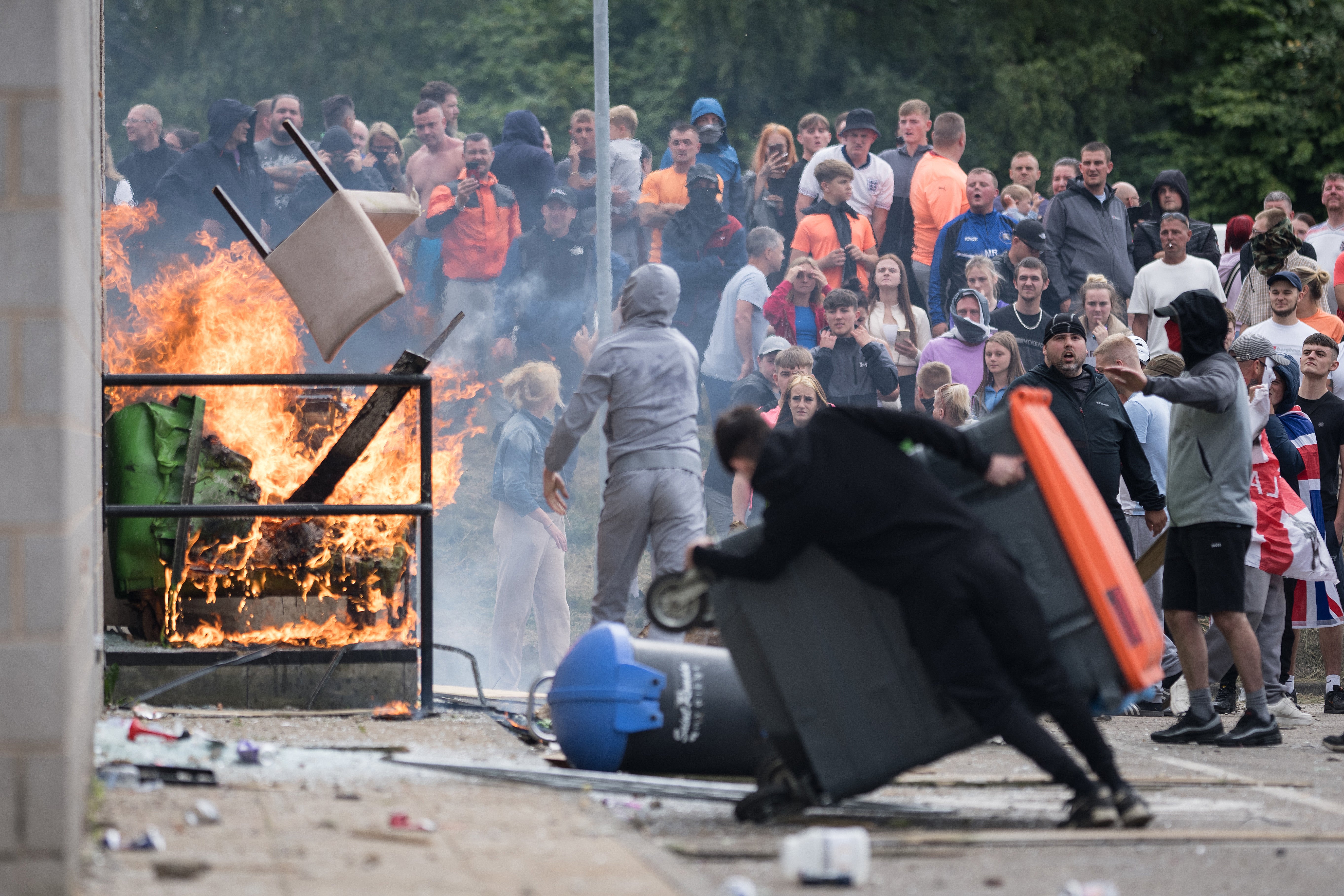Historian tells of frustration after four book events were cancelled over fears of far right violence
‘It’s like we are back at the stage where the far right are strong enough and scary enough that it’s not possible to sit in a bookshop and give a talk about music and history,’ Joe Mulhall says

Your support helps us to tell the story
From reproductive rights to climate change to Big Tech, The Independent is on the ground when the story is developing. Whether it's investigating the financials of Elon Musk's pro-Trump PAC or producing our latest documentary, 'The A Word', which shines a light on the American women fighting for reproductive rights, we know how important it is to parse out the facts from the messaging.
At such a critical moment in US history, we need reporters on the ground. Your donation allows us to keep sending journalists to speak to both sides of the story.
The Independent is trusted by Americans across the entire political spectrum. And unlike many other quality news outlets, we choose not to lock Americans out of our reporting and analysis with paywalls. We believe quality journalism should be available to everyone, paid for by those who can afford it.
Your support makes all the difference.A historian has said it feels like the UK is “going backwards” after four events promoting his new book have been cancelled due to fears of far-right violence.
Joe Mulhall, an expert in far-right extremism, told The Independent venues had been forced to call off events after getting calls and emails from members of the far-right.
The cancellations happened after the leader of the National Front Tony Martin turned up at his book launch at Waterstones in central London, he said.
Mr Mulhall, whose new book is called Rebel Sounds: Music as Resistance, explained the book shop on Gower Street called the police in response to Mr Martin attending the launch.
The historian, who is director of research at leading anti-fascist charity Hope not Hate, recalled how Mr Martin had just sat there quietly before leaving.

He explained Mr Martin posted on social media site X, formerly known as Twitter, with the details of an event promoting his book and urged people to ring up the venue and “politely tell about Joe”.
Mr Mulhall added: “Post the riots, people are just understandably really terrified of the far-right. They have seen what that politics looks like for these people. And so, even if we don’t know if anyone was actually going to turn up to these events, there is the risk or the fear of people turning up.”
I don’t think there should be any street, town, or bookshop in the country where people can’t meet because of the far right and if we are in that situation, that means it’s bad news.
Mr Mulhall said the event cancellations had been “really frustrating” as he explained he thinks he is being targeted for his work with Hope Not Hate.
“It is quite sad in the sense that it feels like we are going backwards,” he added. “It’s like we are back at the stage where the far right are strong enough and scary enough that it’s not possible to sit in a bookshop and give a talk about music and history.”
He said it was difficult to work for years on the book and now be struggling to discuss it in person.
“It’s out in the world and you want to be able to tell the world about it,” Mr Mulhall added. “And the book is about that - the way that music can be used to fight oppression, fight racism, fight dictatorships.”
It comes after the BFI London Film Festival (LFF) cancelled a screening of a documentary called Undercover: Exposing The Far Right - which follows campaigners from Hope Not Hate - over “safety” fears last month.
“I don’t think there should be any street, town, or bookshop in the country where people can’t meet because of the far right and if we are in that situation, that means it’s bad news,” Mr Mulhall said. “I don’t blame the bookshops - especially after the riots, people are scared. It’s a sadness of where we are.”
He explained threats against him and Hope not Hate have worsened since the explosion of far right anti-immigrant violence across the UK over the summer.
Rioters attacked mosques, ambushed riot police, set fire to a hotel housing migrants and torched a public library and Citizens Advice Bureau building in the aftermath of the fatal stabbing of three young girls at a Taylor Swift-themed holiday club in Southport at the end of July.
There were multiple incidents of ethnic minorities being attacked on the streets. In the aftermath of the Southport stabbing, false information spread rapidly online, wrongly claiming the suspect was a Muslim asylum seeker who came to the UK on a small boat crossing.
Join our commenting forum
Join thought-provoking conversations, follow other Independent readers and see their replies
79Comments